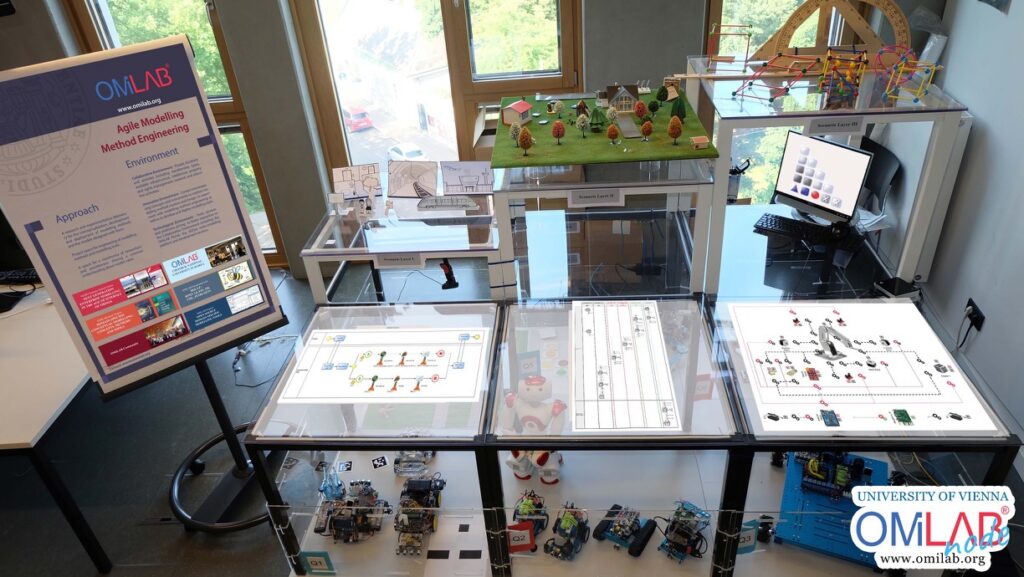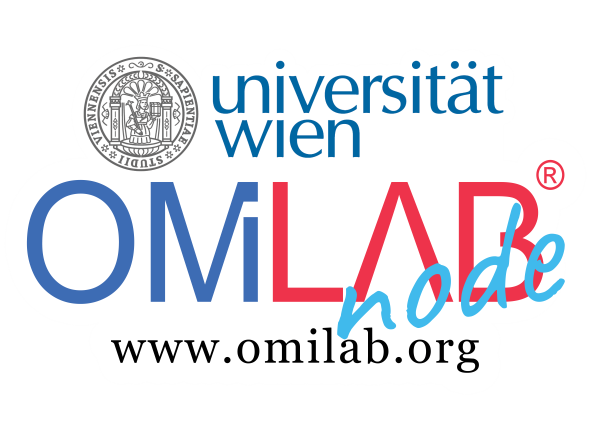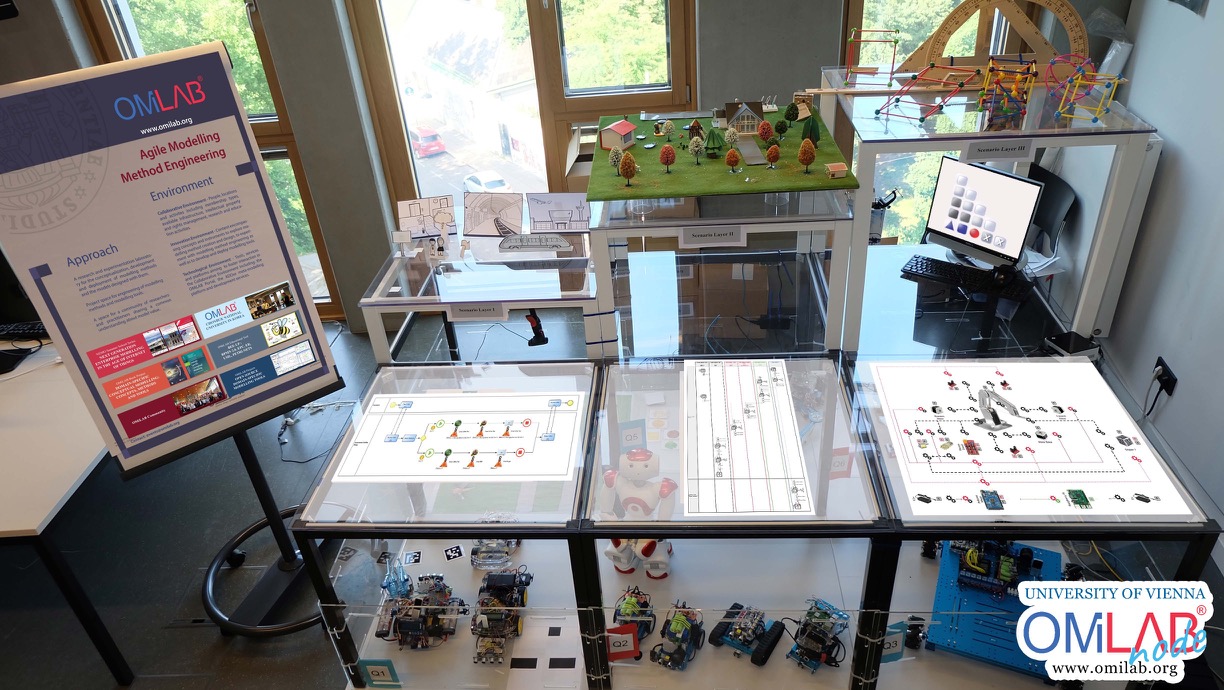The OMILAB Node at the University of Vienna is a space to collaborate, innovate and engineer. Both a physical and virtual place, it is equipped with tools to explore method creation and design, experiment with method engineering and deploy software tools for modelling. The work accomplished by the OMiLAB Vienna Node provides novel research results in the areas of Meta-Modelling, Semantic Technologies, Hybrid Method Engineering and Intelligent and Agile Agents.

The Vienna Node is a space to collaborate, innovate and engineer. Both a physical and virtual place, it is equipped with tools to explore method creation and design, experiment with method engineering and deploy software tools for modelling. The dissemination of established know-how, the exploitation of recent research results and their further development assure a sustainable impact on the community.
The Agile Modelling Method Engineering Framework is one of the core knowledge resources provided by the OMiLAB Vienna Node. Design Thinking is another valuable expertise of the node, enhanced by the development of the Scene2Model tool.
The work accomplished by the OMiLAB Vienna Node provides novel research results in the areas of Meta-Modelling, Semantic Technologies, Hybrid Method Engineering and Intelligent and Agile Agents.
Competences
- Meta-modelling
- Modelling Tool Engineering
- Digital Twin
- Agile Modelling Method Engineering
About the Hosting Organisation
The main research goal of the RG Knowledge Engineering is to provide transparent, ubiquitous knowledge that can be semantically processed by IT systems. In the context of international cooperation, the group provides research-guided teaching on an advanced scientific level with practical relevance mainly in the area of business informatics. The University of Vienna has more than 650 years of academic excellence, being one of the oldest higher education institutions in Europe. Nine scientists associated with the University of Vienna, through either research or teaching, have been awarded the most prestigious distinction in science: the Nobel Prize. Currently, the university has 15 faculties and 5 centres, a total of 9.900 employees and 88.000 students across 178 different study programs.



